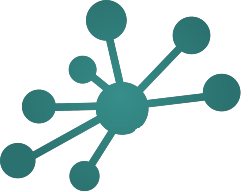info@vennessexmathshub.co.uk (01206) 489933 Update Contact
List of Services
-
List Item 1 Write a description for this list item and include information that will interest site visitors. For example, you may want to describe a team member's experience, what makes a product special, or a unique service that you offer.
Item Link List Item 1 -
List Item 2 Write a description for this list item and include information that will interest site visitors. For example, you may want to describe a team member's experience, what makes a product special, or a unique service that you offer.
Item Link List Item 2 -
List Item 3 Write a description for this list item and include information that will interest site visitors. For example, you may want to describe a team member's experience, what makes a product special, or a unique service that you offer.
Item Link List Item 3 -
List Item 4 Write a description for this list item and include information that will interest site visitors. For example, you may want to describe a team member's experience, what makes a product special, or a unique service that you offer.
Item Link List Item 4
SPECIALIST KNOWLEDGE FOR TEACHING MATHEMATICS (SKTM)
EARLY YEARS TEACHERS
Why is this project needed? What does it involve? What are the benefits?
Who are the intended participants in this project? What is their expected commitment? What resources will they explore?
‘Early Years settings and schools should invest in developing practitioners’ own understanding of mathematics, their understanding of how children typically learn, and how this relates to effective pedagogy.’ – EEF KS1 Guidance Report
This programme supports Early Years teachers to develop specialist knowledge for teaching maths, complementing best practices in Early Years and developmental learning trajectories.
There are two pathways for the Early Years SKTM that hubs can offer: Number and/or Spatial Reasoning:
- NCP24-25_N (Number)
- NCP24-25_SR (Spatial Reasoning)
Participants can only select one pathway in an academic year and can engage with the other programme at a later date. For each pathway, Cohort Leads will work with participants for the equivalent of four days, utilising NCETM resources and collaboratively designing school-based tasks that will influence practice development. There will be planned opportunities for participants to share the impact their practice change has had on pupils’ learning in maths.
There are highly-regarded centrally produced core materials for both Number and Spatial Reasoning pathways – three modules focused on maths and three modules with a pedagogy focus – that have been piloted and refined over several years. Cohort Leads use the core materials in their programme, which they tailor according to the needs of the participants.
This programme is designed for Early Years teachers who would like to further develop their specialist knowledge for teaching maths. It will be particularly relevant for individual teachers that have not received maths-specific training. Maths leads in primary schools who want to deepen their knowledge of Early Years maths practice would benefit from participating in this programme. A maths lead may find that participating alongside an Early Years teacher from their school will support their understanding of progression from Foundation Stage to KS1.
Participants will attend the equivalent of four days, where they will collaboratively work on maths tasks facilitated by Cohort Leads. There is opportunity for structured conversations in order to unpick the maths, the pedagogy modelled within sessions, misconceptions that pupils have, and how the approaches can be transferred to the participants’ classrooms. Between sessions, participants contribute to their online community, complete school-based tasks, and share their observations through discussions with peers.
What are my next steps?
If you would like to take part in this project, please fill out the application below.
Or would you like to explore more?





